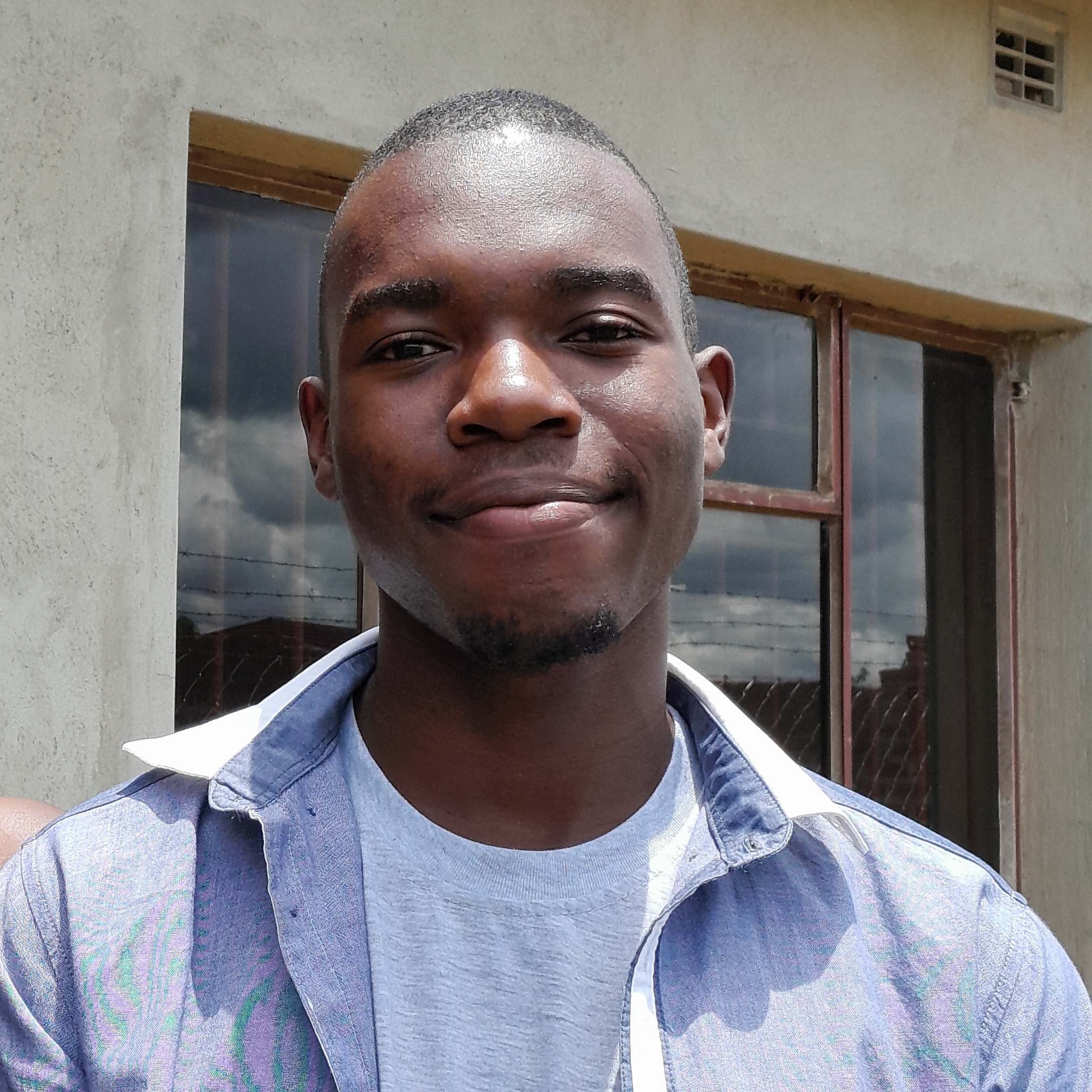[Pastoral]
From the field, you could see the man
as a splotch of colour, hands fanning air
to reach a bleating beast; yellow eyes patched
with wildness. How to recognise the shape
of what would hold you before slaughter?
This was God’s country. The man’s face
was bone white and kind only to what could be hurt
without protest, like the goat’s head bowed
to severance, surrender; brown horns
like dirty bone left to sun. Even what breathed
resembled death. Even the goat traced
the shape of its own dying without knowing;
continued crying as its hooves pressed misshapen
moons into the dirt, or perfectly shaped tears.
From a field, a goat’s cry sounds like the shadow
of a black man’s shriek. In other repeated worlds, black
men pressed thumbs into dirt, handled
tobacco stems with a softness not ceded to them.
This was God’s country. The man you could see
from the field flicked a blade. Gush.
[Pastoral]
All the poems l write you gaze out to the plain
of thistles, thick stretches of shrubs bunched like mushrooms,
black cow burnt last week in wildfire—consequence of wandering
too far from what yields your head to plough. We don’t
speak of the harshness of this land enough. You say the rain
comes with the smell of wet dust and scoured earth, absence
of my mouth inside the hollow of yours, but for days
I’ve driven silver disks into red soil, felt the soft give
of easy surrender like it was my own. Desire sings
far and absent like a new moon over pastures l own
without knowing. I think of you crouched over
a dirty sink – bleached hands, future mildew
peeling back to meet you – and it breaks me.
Each morning; white mist like ghosts blown apart,
goats’ bleats skewing me from a skinless dream.
I wish to sleep well, l wish to sleep well. I miss
each sunset hanging sickles and axes in an orange-lit
barn that gleams cleaner than my body. I think of nothing
as weapons, only tools, only things to knead the land
until its stitch marks run unnoticed. I wish to love you
minus the landscape. I wish to run on unclaimed.
[Pastoral]
What I’ve summed up as my past fits into my hands
like a fistful of mulch, slick with what it prevents—
erosion. No one sees my naked back through cracks
in the undergrowth lush with the orange light of evening,
ending. I am not close to ending, yet, but I listen
for what speaks to me without voice; violence;
God; the gaping mystery of what history did not clothe
into story—the small day of a man’s life marked
by a cruelty so thin he could not rub it between
finger and thumb to crush its grain. I touch the rough,
exposed root of a tree. A girl I once loved told me
each root remembered the shape of what once stood
atop it; residual shadow. I did not understand this.
My love did not come with understanding. Now,
I imagine lightning cracks, shuffle of boys’ feet
looking for shade. goat’s blood pooled into an uneven
pond of red, hung body swinging into afterlife.
I imagine each forgotten distance blown into clarity.
Through slats of sunlight breaking through trees, my body
is only half-lit. half understood, halfway in the path
it burns towards Heaven.
***
Photo by John Bakator on Unsplash


